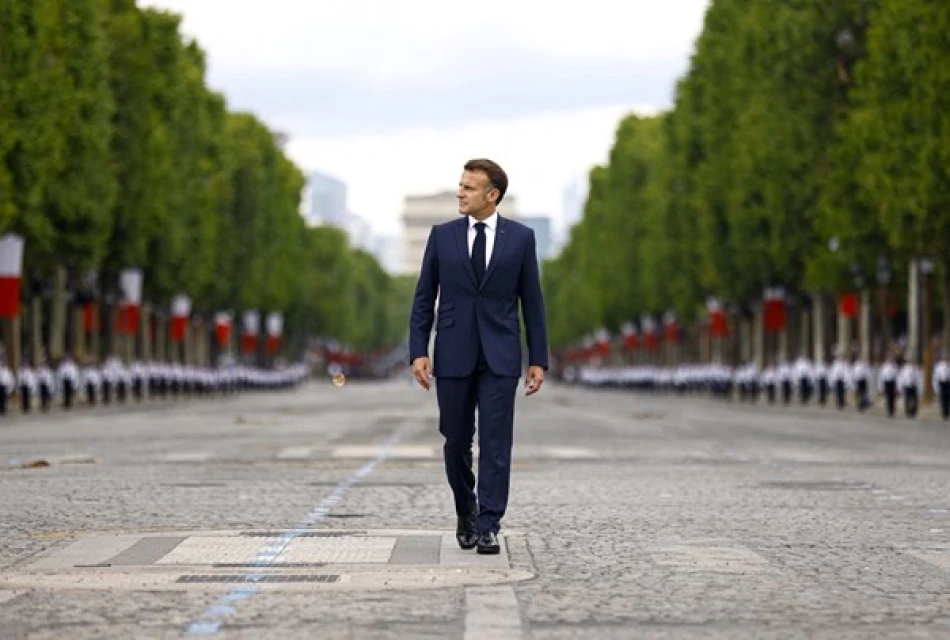
France Celebrates Bastille Day with Vibrant Festivities
France Celebrates Bastille Day with Military Pageantry as Indonesia Takes Center Stage
France marked its most significant national holiday on Monday with a spectacular military parade down the Champs-Élysées, featuring 7,000 personnel on horseback and in armored vehicles. This year's Bastille Day celebration highlighted France's diplomatic pivot toward Southeast Asia, with Indonesia serving as the honored guest nation amid growing geopolitical tensions and France's renewed focus on Indo-Pacific partnerships.
A Display of Military Might and National Pride
The annual July 14th festivities transformed Paris into a showcase of French military capabilities and cultural heritage. President Emmanuel Macron inspected the troops and rekindled the eternal flame beneath the Arc de Triomphe, marking the ceremonial beginning of nationwide celebrations that extended far beyond the capital.
The spectacle included cutting-edge drone light displays over the Eiffel Tower, aerial demonstrations by the French Air Force, and traditional displays featuring warriors carrying ceremonial axes. Nearly every French town and city participated with synchronized fireworks displays, creating a unified national moment of celebration.
Indonesia's Strategic Significance as Guest of Honor
France's selection of Indonesia as this year's special guest reflects deeper strategic calculations beyond ceremonial diplomacy. As the world's fourth-most populous nation and Southeast Asia's largest economy, Indonesia represents a crucial partner in France's Indo-Pacific strategy, particularly as Western nations seek to counter China's growing influence in the region.
Economic and Defense Partnerships
The invitation comes at a time when France is actively pursuing defense contracts and economic partnerships across Southeast Asia. Indonesia's massive infrastructure needs and growing defense budget make it an attractive partner for French companies like Airbus, Thales, and Naval Group, which have been competing with Chinese and American firms for lucrative contracts.
This diplomatic gesture also signals France's commitment to multilateral engagement with non-aligned nations, as Indonesia maintains its traditional foreign policy of non-alignment while balancing relationships with major powers.
Bastille Day's Enduring Political Symbolism
The celebration of democratic freedoms and national pride takes on particular resonance in 2024, as France grapples with internal political divisions and external security challenges. The military parade serves multiple purposes: demonstrating France's defense capabilities to international audiences, reinforcing national unity during politically turbulent times, and projecting French influence on the global stage.
Historical Context and Modern Relevance
Bastille Day commemorates the storming of the Bastille fortress on July 14, 1789, marking the beginning of the French Revolution and the eventual establishment of democratic principles that would influence political movements worldwide. The modern celebration, however, has evolved into a carefully orchestrated display of state power and international diplomacy.
Unlike similar national day celebrations in other countries, France's Bastille Day maintains its unique character by combining revolutionary heritage with contemporary geopolitical messaging. The choice of guest nation often reflects France's current diplomatic priorities, making each year's celebration a window into French foreign policy thinking.
Implications for France's Global Strategy
The emphasis on Indonesia as a partner nation underscores France's recognition that future global influence will increasingly depend on relationships with emerging middle powers rather than traditional Western allies alone. This approach aligns with President Macron's vision of strategic autonomy for France and Europe, seeking to build coalitions that extend beyond NATO and EU frameworks.
As France continues to navigate complex international relationships while maintaining its role as a global power, Bastille Day serves as both a celebration of national identity and a diplomatic tool for advancing strategic interests in an increasingly multipolar world.
Most Viewed News

 Layla Al Mansoori
Layla Al Mansoori






